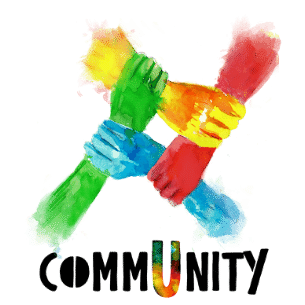Persona’s Push and Pull Factors, and Cross the Line
Purpose of the activity: diving deep into youth through empathy, and understanding and experiencing the complexity of the radicalisation process.
During the activity, each participant is given one of eight uniquely designed Persona cards and is asked to study for five minutes. Each Persona card contains general information, the participant’s family background, friend circle, socio-economic status, talents, weaknesses, vulnerabilities to adopting a radical mindset and behaviour, and strengths to be resilient and resistant to a radical mindset and behaviour.
After a five-minute study, all participants are asked to line up on one side of an empty and spacious room. A moderator or trainer projects a succession of 26 prepared experiences or life events based on some of the most common push and pull factors of radicalisation, such as isolation, marginalisation, discrimination, poverty, and finding a sense of belonging and community. Examples include “At work, a customer/client/patient asks to be helped by somebody else than you”, “You attend a gym class. The instructor asks you to pair up for the next exercise. You have the feeling that suddenly the “air clears around you”. No one wants to team up with you”, and “You are on the bus when someone steals a lady’s phone. The bus driver closes the doors and says that no one will leave the bus until the phone has been found. Everyone looks at you”.
The participants are asked to take a step forward if they feel that the Persona they have studied will take a step towards the radical path with each specific experience or life event. If the participant feels that the statement or experience is not applicable to the Persona, they are asked to remain in place. If the participant feels that the statement would draw the Persona away from radicalisation, they are asked to step backwards. After 26 different experiences and life events, the participants are placed across the room.
The moderator asks the participants with each unique Persona (roughly 2-3 people per Persona) to raise their hands, conveying the different places they stand around the room. The activity is beneficial for multiple reasons. First, the participants are forced to empathise with the Persona they hold. Second, the workshop shows that even though some participants have the same Persona, they still assess someone’s level of radicalisation differently. As seen here, it is especially important in our work with young people to be aware that no matter how extensive our knowledge of radicalisation is, how we perceive someone is incredibly subjective.
Interested in doing the Persona activity with your youth group or class?
You can find the Persona cards here 👉
You can find the statements here 👉
Tips!
- Add your own statements that are relevant for your local community, age-appropriate or applicable to the target group you are working with.
- Create and add your own Persona cards!
